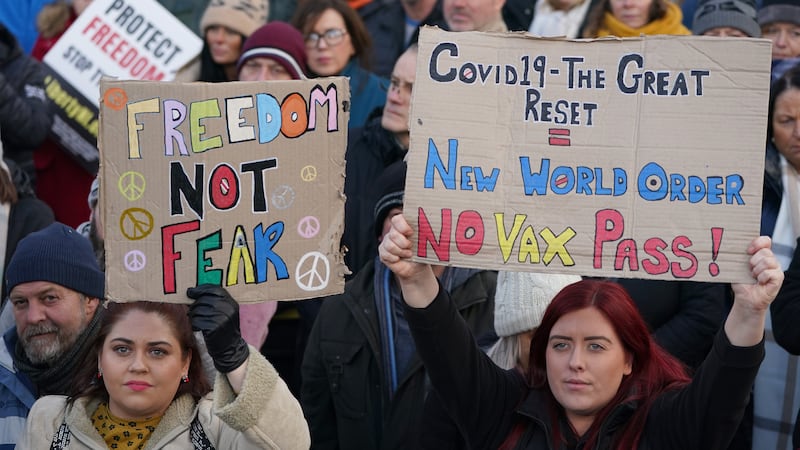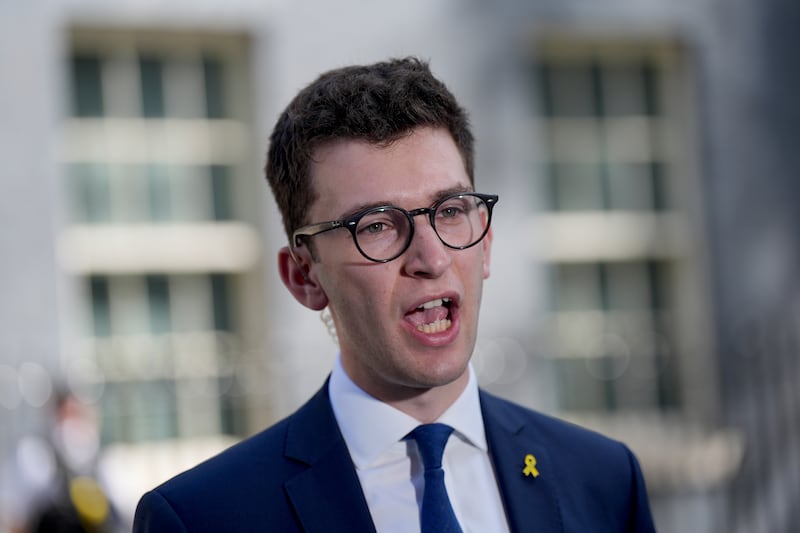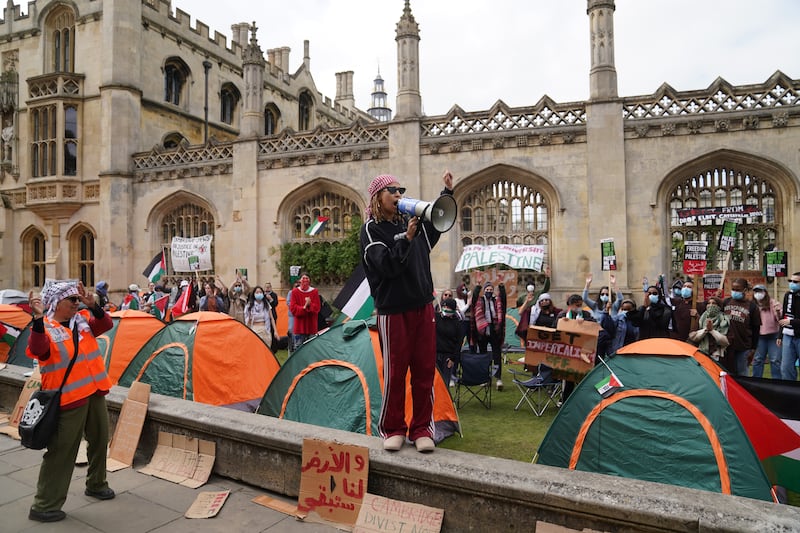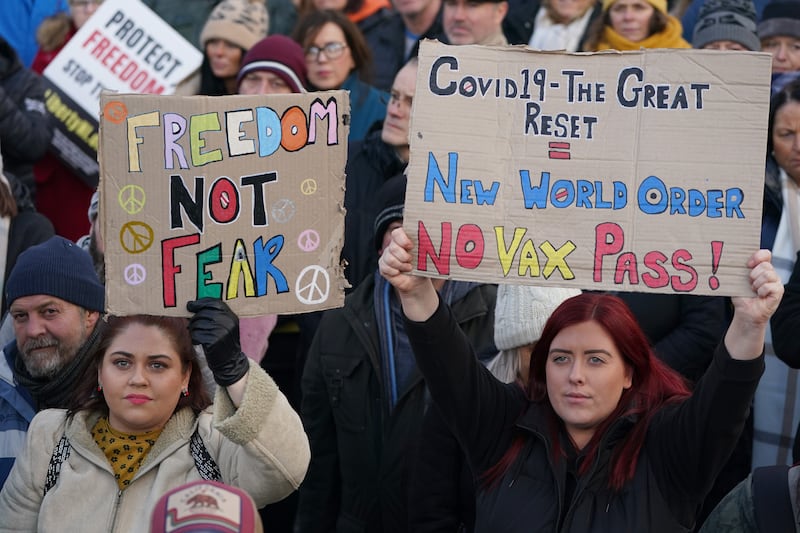The spread of conspiracy theories is “deeply disturbing” and threatens the health of British democracy, Penny Mordaunt said as she launched a guide to help politicians tackle disinformation.
Ms Mordaunt said the Guide for Members of Parliament and Candidates on Conspiracy Theories, published on Tuesday, would bolster her efforts to “protect the public from the damaging effects of misinformation and safeguard the integrity of our democratic process”.
Compiled by expert groups including the Antisemitism Policy Trust, Full Fact and Tell MAMA, the guide gives examples of eight conspiracy theories that have proliferated in the UK in recent years, including the QAnon movement, anti-vaccine narratives, climate change denial and misinformation about 15-minute cities.
Ms Mordaunt, who commissioned the guide as Leader of the House of Commons, said: “The proliferation of conspiracy theories across the UK is deeply disturbing. They are deliberate campaigns to spread disinformation and fear.
“If they go unchallenged we risk the public being conned and their wellbeing potentially damaged.
“These campaigns are also a threat to the health of our democracy. It is essential that we give the public and their representatives the tools they need to combat this phenomenon.”
Her Labour counterpart, Lucy Powell, said the guide was a “must-read for MPs and candidates” who had “an important role in leading their communities, speaking on the national stage with clarity and truth, and against mis- and disinformation which can harm communities and our country”.

Concern about belief in conspiracy theories has risen in recent years with the increasing use of social media, and a 2018 study suggesting 60% of the British public believed at least one conspiracy theory.
Research from King’s College London has also identified a link between belief in conspiracy theories and antisemitism.
Danny Stone, chief executive of the Antisemitism Policy Trust, said: “One doesn’t have to fall particularly far down any conspiracy theory rabbit hole before finding antisemitic themes, tropes or ideas.”
He added: “It is imperative that parliamentarians and parliamentary candidates can spot, and certainly avoid promoting and amplifying, conspiracy myths.”








